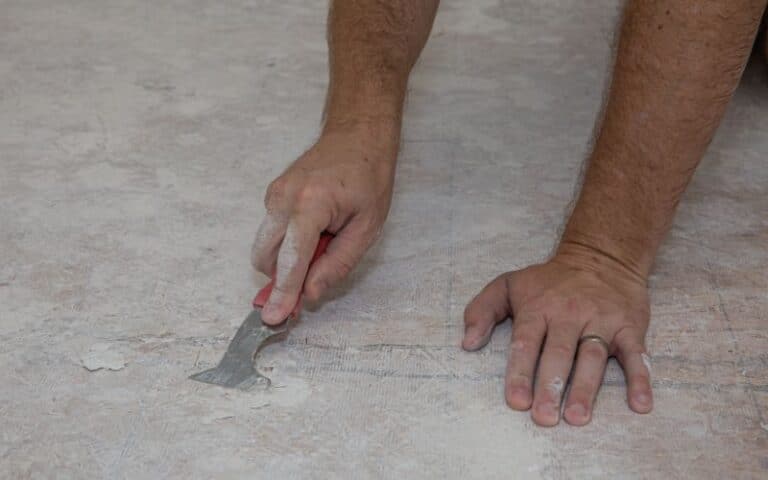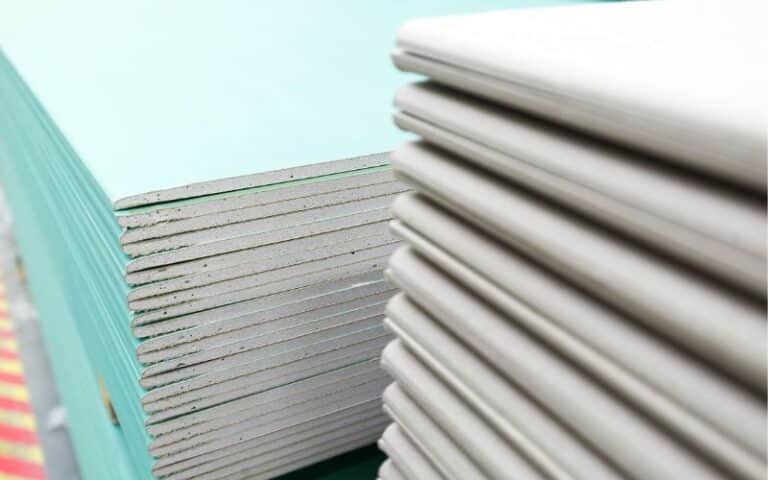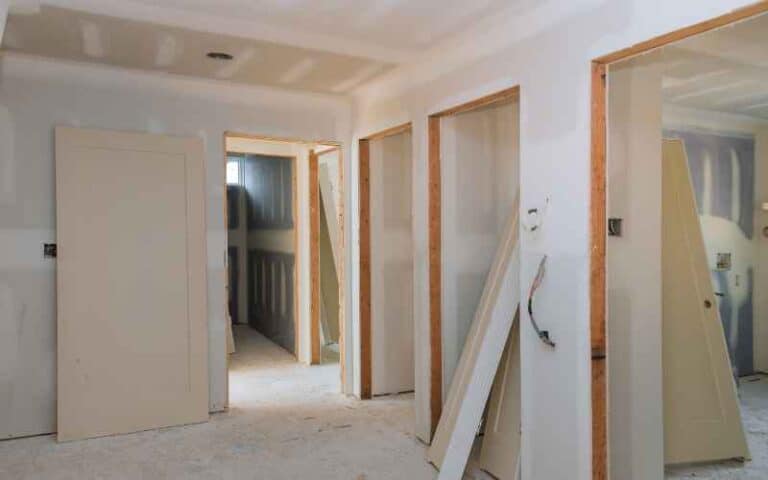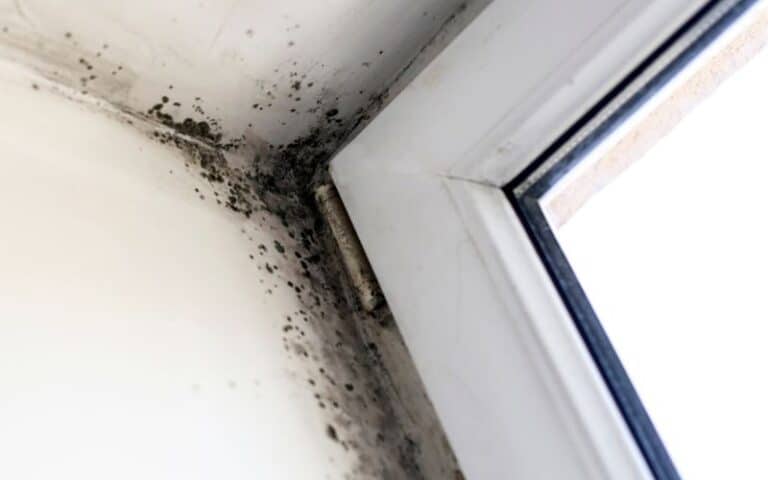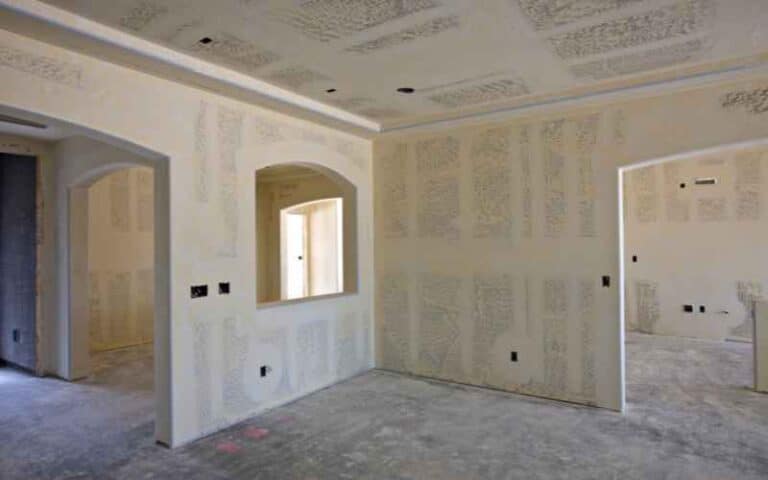Drywall installation is an essential part of any house project. This is because it ensures impeccable insulation, and its aesthetic nature gives an ambient look.
You’re on the right track if you intend to invest in this option. Regarding the drywall for your garage ceiling, you may question the ideal size and suitable model.
This guide answers all of that. Let’s dive in.
The most popular size option for the drywall in a garage ceiling is 4ft by 8ft, accompanied by a ½ or ⅝ inch thickness. In the same way, a moisture-resistant or fire-resistant rated drywall will be an excellent option. However, the ideal size and model for your ceiling garage drywall depends on certain factors. These include the wall weight and the level of aesthetics and insulation needed.
The accuracy of your garage ceiling drywall requires planning since many things come into play. Fortunately, this article provides secret guides to ensure a top-notch installation.
We’ll likewise provide some tips on installing the drywall effectively so you can get the most out of it.
Ready for a Drywall Quiz?
Do Garage Ceilings Require Drywall?
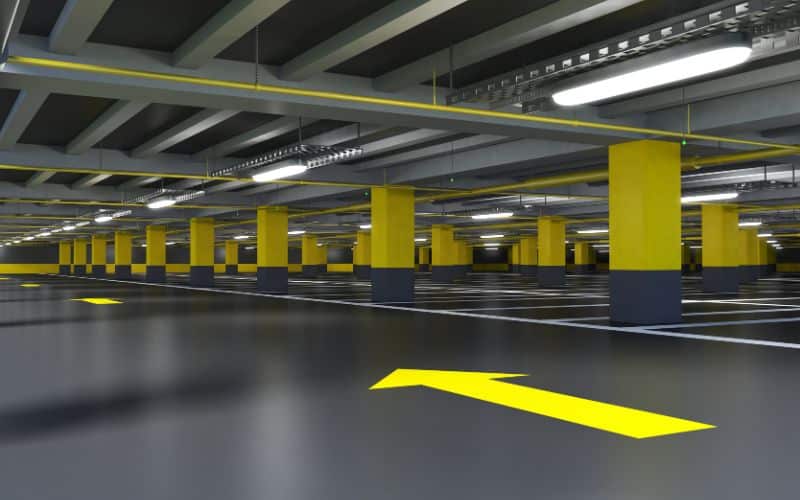
Though drywalls aren’t mandatory for garage ceilings, they are an excellent option due to their numerous benefits.
They’re easy to install and give your garage the aesthetic look it deserves. Drywalls offer unmatched performance compared to other alternatives, such as wood, metal, or plastic panels.
They are more durable and don’t necessarily require painting or staining like wood panels do.
Below are some reasons why you should select drywall for your garage ceiling.
#1. Durability
Drywalls constitute gypsum, a soft mineral, solidly compressed between two sheets to produce a solid panel.
This makes the fabrication sturdy enough to withstand wear and tear. With this design, the drywall is likewise resistant to mildew and mold, a significant concern in damp areas.
#2. Budget-friendly
Drywalls are cheaper since they’re relatively accessible and available than other alternatives like wood paneling.
Though the price can vary depending on the type, size, and thickness, they’re not too much on the high side.
With this variance, you can choose the one that suits you perfectly and start your project.
#3. Proper Insulation
Drywalls help improve your garage insulation, ensuring comfortability and minimizing energy costs. While they conserve heat in winter, they also keep the garage cool in summer.
Altogether, even though drywalls are a fantastic alternative for your garage ceiling, it’s good that you weigh their upsides and downsides.
Can You Use Any Drywall for Garage Ceilings?
If you plan on renovating or fixing up your garage, you may wonder if any type of drywall can be used for the ceiling.
Generally speaking, it is possible to use any drywall for a garage ceiling. However, there are some important considerations to take into account.
Depending on the size and height of your garage, you may need to use a thicker or more durable type of drywall to ensure that it is strong enough to support any supported weight.
Additionally, if moisture is an issue in your garage, you should opt for moisture-resistant drywall. Some drywalls are better suited for specific climates or environments.
Thus, before deciding which drywall to use for your garage ceiling, it’s essential to consider all the factors that could affect its performance.
Ultimately, the best option will depend on your specific needs.
Below are some pros and cons associated with using drywalls as garage ceilings.
| Pros | Cons |
|---|---|
| They’re Cost effective | They’re heavyweight |
| Easy installation | They’re vulnerable to impacts |
| Good insulation | High exposure to dust |
| They’re durable | Difficulty in repairs |
What Type of Drywall Is Best for Garage Ceiling?
Regarding the best drywall for your garage ceiling, many factors must be put into consideration.
The reason is that different garages have different designs. More so, you may have your personal preference based on the environmental climate.
Notwithstanding, the most preferred choice in typical scenarios includes moisture resistance and fire-resistant rated drywall.
However, you must consider the affecting factors to ensure accuracy. Likewise, you should know the different types of drywalls for ceilings available in the market.
You’ll express your desire easily if you know each ceiling drywall and what they stand for.
Here are things to remember when getting drywall for your garage ceiling.
#1. Price
As much as you want the best drywall for your garage ceiling, you must know the price of every model.
This will help you know if you’re up to getting the high-priced ones that are typically high quality.
Especially if you’re on a budget, you may have to consider common options like standard drywall.
On the other hand, other models like fire-resistant and mold-resistant drywall may be more expensive, so choose wisely.
Subsequently, the table below gives the approximate price range of some garage ceiling drywall.
| Drywall | Price Per Square Foot |
|---|---|
| Standard drywall | $0.25 to $0.40 |
| Moisture resistance | $0.45 to$0.70 |
| Fire resistant | $0.40 to $1.00 |
| Sound Control | $0.95 to $2.25 |
However, these price ranges may vary depending on your region and the suppliers.
It’s always a good idea to shop around and compare prices to get the best deal. Additionally, installation costs are not included in these prices.
#2. Intended Usage
The purpose of the garage also plays a major in determining the best drywall for its ceiling. Standard drywalls are an excellent option if the garage is primarily used for storage.
But if the intended usage is a gym shop or any space that requires a more temperature-controlled environment, you may want to invest in better options. These include moisture and mold-resistant drywall.
Also, in scenarios of music studios, home theaters, and any space where noise reduction is needed, go for thicker drywalls.
#3. Safety Concerns
Fire-resistant drywalls are the best if you’re worried about safety concerns such as fire breakouts.
Their fabrication and designs include materials and technologies that resist flames and slow fire spread.
With this, you’ll have more time to evacuate even if a fire breaks out.
On the other hand, if the garage tends to be damp or humid, moisture-resistant drywall will be an excellent choice. It is handy, especially in areas with frequent rainfall or high humidity.
#4. Who’s Doing the Installation?
If the installation is a DIY project, select a drywall that’s easy to work with. By implication, the drywall must not require a high specialization or technical know-how.
However, hiring a professional is preferable, especially in complex situations. Moreso, you’ll receive recommendations based on their experience and expertise.
How Can I Ensure the Ceiling Fan Box is Flush With the Drywall When Installing a Garage Ceiling?
Installing a garage ceiling can bring about a common issue known as the ceiling fan box installation problem. To ensure the box is flush with the drywall, follow these steps: securely attach the box to the ceiling joists, measure the box’s depth, adjust the drywall thickness accordingly, and carefully cut the opening. Proper installation is crucial for safe and effective ceiling fan operation.
What Drywall Thickness Is Best for Garage Ceiling?
Typically, the suitable drywall thickness for garage ceilings includes ½ or ⅝ inches.
Even so, it’s always good to consult an expert, especially when other circumstances are involved.
Though both thicknesses are suitable, there are specific factors to consider when choosing which thickness to use. For instance, your garage ceiling height.
If your garage has a low ceiling height, using the ½-inch drywall may be more fitting because it’s thinner and lighter than the 5/8-inch.
This factor also makes it easier to handle and install. On the other hand, if you have a higher ceiling, the 5/8-inch may be more suitable. It’ll provide more support and durability.
Additionally, the joist spacing in your garage ceiling can determine drywall thickness.
Assuming the joist spacing is wider, the 5/8-inch drywall would be necessary to provide adequate support and avoid sagging.
The additional thickness will help distribute the weight of the drywall equally across the joists.
One other important thing you shouldn’t neglect is insulation. If you intend to insulate the ceiling garage, the 5/8-inch drywall will be the best option.
The reason is that it’ll provide the assistance needed for insulation. Insulation can add up to the average ceiling weight. Thus a thicker drywall will minimize structural deformities.
Best Drywall Types for Garage walls
Regarding drywall for garage walls, there are many types to choose from.
Various drywalls have advantages and disadvantages, so it’s significant to evaluate each one carefully before deciding.
From traditional paper-faced drywall to moisture-resistant green boards and fire-rated drywall, numerous options can help you create the perfect garage walls for your needs.
Below are the different types of drywall available and their respective benefits.
#1. Standard Drywall
Standard drywalls are common and are applicable in almost every situation. They constitute gypsum and are best suited for non-moisture areas.
#2. Moisture-Resistant Drywall
As the name implies, they aim towards withstanding moisture. Their moisture-resistant nature is attributed to a special coating, making it a good fit for moisture-prone walls.
You can use moisture-resistance drywalls in humid areas like the kitchen and bathroom.
#3. Fire-Resistant Drywall
Fire-resistant drywalls slow down the impact of fire in any eventuality.
They consist of special additives which aren’t so combustible or inflammable; this will give the occupants more time to find their way out.
Additionally, this choice is trusted because it’s contained in the building codes.

